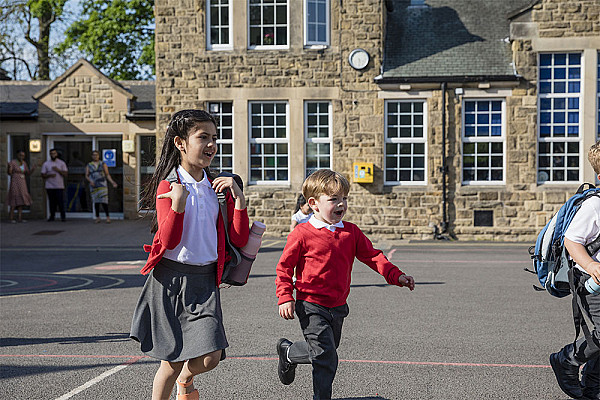Safety Planning and Protection from Abuse
Safety planning is a crucial step in safeguarding yourself from future violence and abuse. While the tips below can help, seeking professional support and guidance is essential for a comprehensive and tailored safety plan.
One of the primary reasons many individuals turn to our services is for assistance with safety planning, and this is an area where we specialise. We strongly encourage you to reach out if you need help. There may be things you have not considered relevant to your personal circumstances that you and your loved ones can be supported with to keep safe.
Below are practical safety planning tips. If you want more detailed information click here for our Survivor Safety Guide.
If You Are Still Living with the Abuser:
• Emergency Exit Plan: Identify the safest and quickest way to leave your house in an emergency.
• Keep Keys Accessible: Ensure your keys are easy to reach.
• Safe Destination: Plan a safe, public place unknown to your abuser where you can go in an emergency.
• Emergency Bag: Prepare a bag with essentials like a mobile phone and charger, keys, spare money, important documents (orders, birth certificate, driver’s license), clothes, and medication. If you have children, include their necessities such as clothes, formula, birth certificate, and nappies.
• Log Abuse: Keep a record of any abuse, harassment, or threats - ensure it is somewhere safe.
• Code Word: Establish a code word to alert family, friends, or professionals that you are in danger.
• Emergency Contacts: Call 999 if you are in immediate danger. Use 101 to report incidents of abuse, harassment, or threatening behaviour.
• Confide in a Trusted Adult: Identify and talk to an adult you trust; this may be a family member, friend, colleague or professional
• Avoid high risk areas: Avoid the following high-risk rooms if you sense things are beginning to escalate:
The Kitchen… where there is access to sharp, dangerous objects.
The Bathroom… where there is access to water and large ceramic objects.
The Stairs… where you may become stuck and unable to run to safety or may be pushed.
For more safety advice and detailed information, click here for our Survivor Safety Guide.
If You Have Left the Abuser:
• Carry Your Phone: Always have your mobile phone with you, fully charged and with available credit/minutes.
• Confide in a Trusted Adult: Identify and talk to an adult you trust; this may be a family member, friend, colleague or professional
• Report Abuse: Report incidents of abuse. Call 999 if you are in immediate danger. Use 101 to report incidents of abuse, harassment, or threatening behaviour.
• Log Abuse: Keep a record of any abuse, harassment, or threats, even if you do not want to report incidents to the Police at that time- you may need this information at a later date.
• Avoid Remote Areas: Do not walk alone in remote places like alleyways.
• Social Media Safety: Consider blocking the abuser on social media and your phone. If you prefer to gather evidence, think about the impact of not blocking them.
• Turn Off Location Services: Ensure location services are off on all social media apps to prevent tracking.
• Change Routine: Alter your daily routine to avoid places the abuser knows.
• Avoid Being Alone: Try not to go out alone, especially when walking from school or work.
• Inform Others: Let a family member or friend know where you are going and when you plan to return. Download a personal safety App, such as the Hollieguard App.
• Secure Your Phone: Keep a passcode on your mobile phone.
• Protect Passwords: Never share your personal passwords with anyone except your parents or carers.
For more safety advice and detailed information, click here for our Survivor Safety Guide.
Staying Safe at School:
 • Walk with Someone: Always walk to and from school with someone.
• Walk with Someone: Always walk to and from school with someone.
• Safe Place: Spend break and lunch times in a safe place at school with friends. Identify your safe place in school.
• Class Transitions: Ask a friend to walk with you between classes.
• School Safety Plan: Work with your school to create a safety plan. This might include access to your safe place, leaving class early to avoid your abuser, or having a teacher walk you to the bus stop.
• Trusted Contact: Identify someone at school you can talk to if you need to rearrange your timetable to avoid your abuser.
Secure your Tech.
 Click on the links to the following interactive tools:
Click on the links to the following interactive tools:
Secure your tech from abuse - guides | Refuge Tech Safety
Rounded Knives Save Lives
Research has shown that kitchen knives account for most fatal and non-fatal stabbings, including any that occur due to domestic abuse and in the home.
The soft knives campaign aims to raise awareness of people replacing their kitchen knives with rounded knives that don't penetrate clothing or skin when used if someone is stabbed.
Round-tipped knives can be sourced for a reasonable price at various outlets, including online.
If you are at risk of domestic abuse, consider replacing sharp, pointed kitchen knives with rounded ones.
